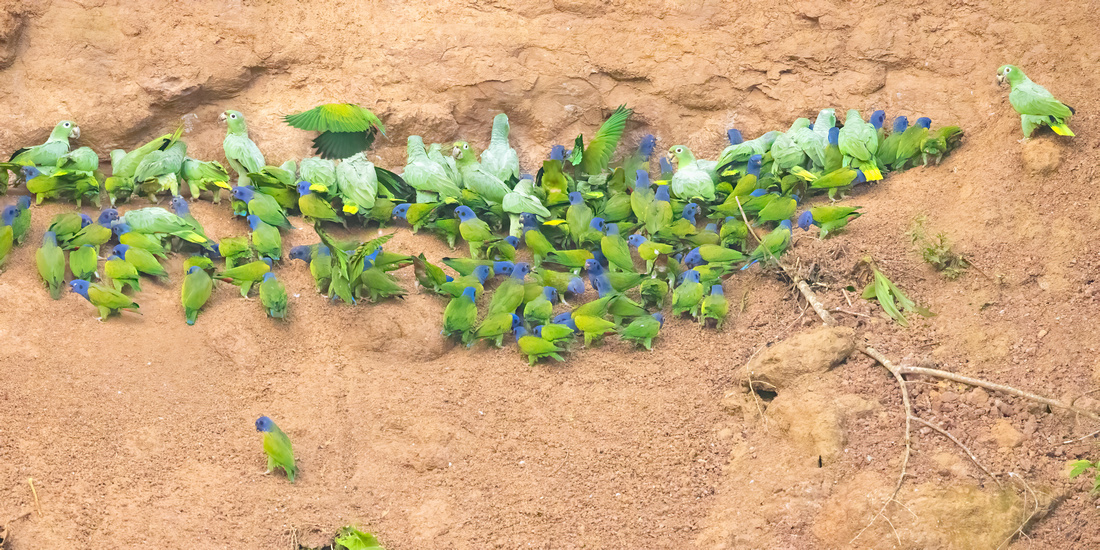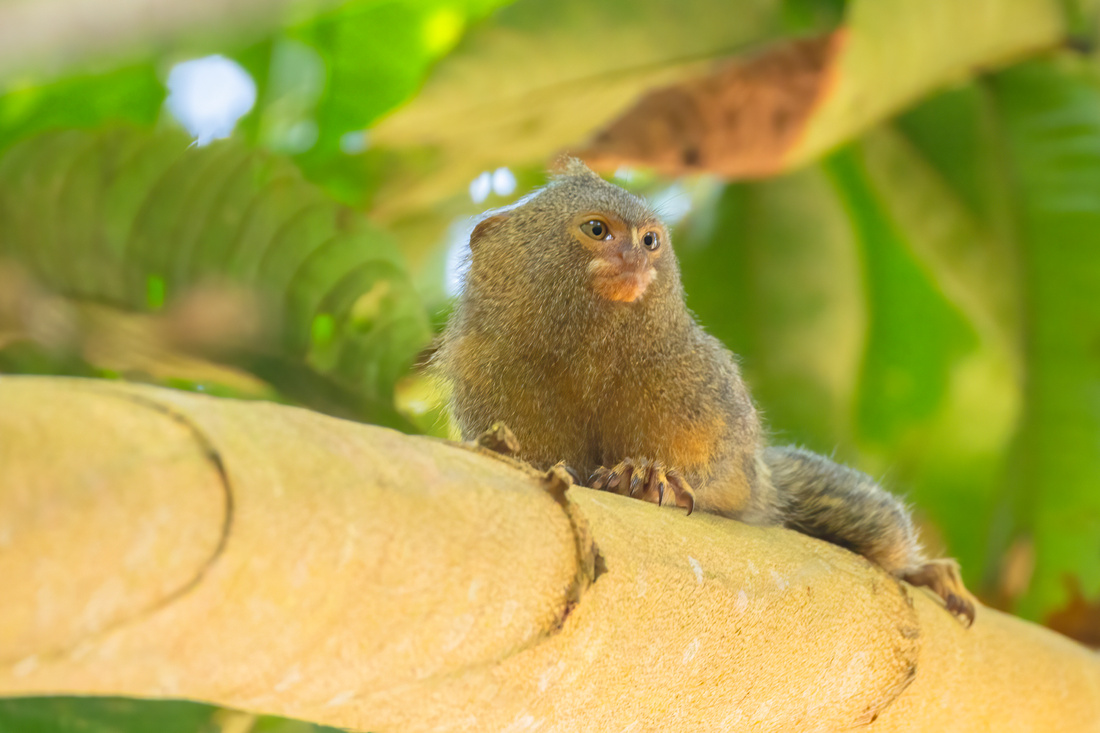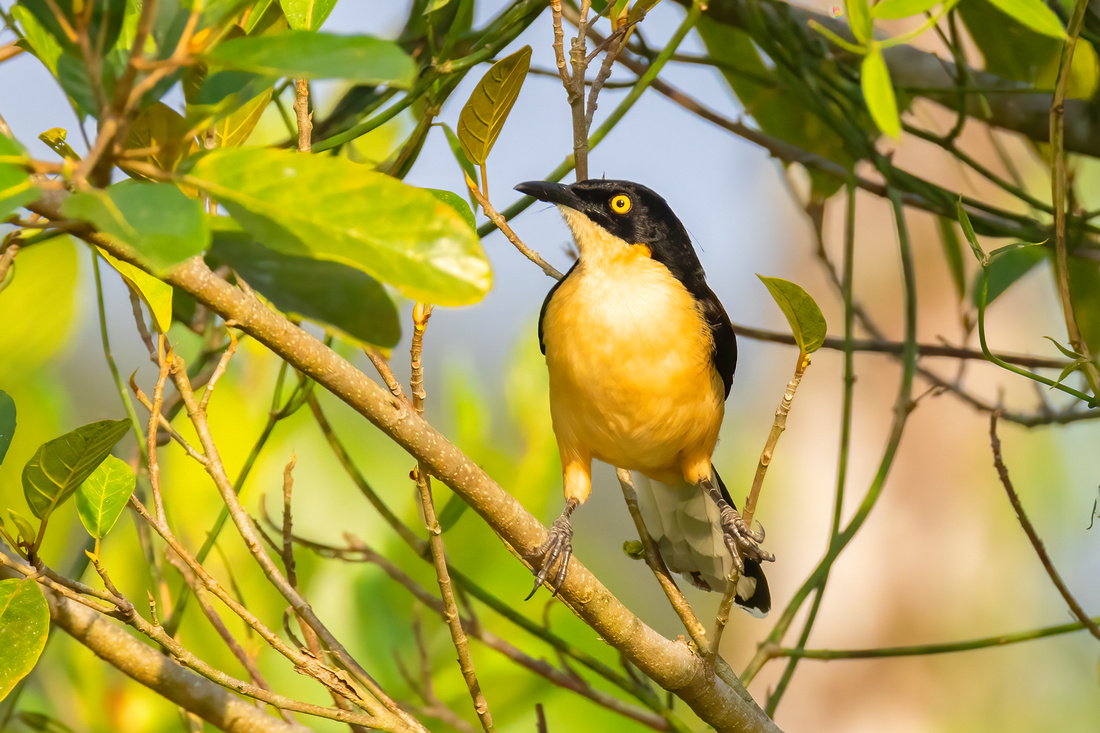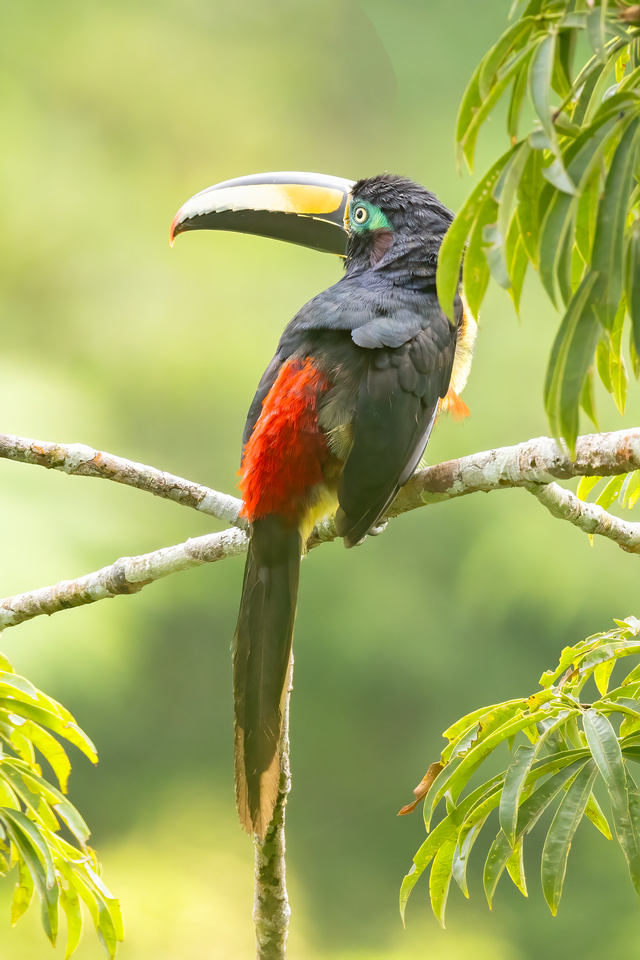Ecuador 2025 Part 3
Sani Lodge continued
Another early start. No sleeping in on this trip! Today we set off to visit two parrot clay licks. As we canoed down a narrow channel in the dark Carlos spotted a tiny American pygmy kingfisher. I was able to capture a decent image of this tiny bird illuminated by Carlos' flashlight. A short time later we encountered a common potoo calling from the top of a stream-side snag.

 American Pygmy Kingfisher
American Pygmy Kingfisher
On our boat ride to Anangu Clay Lick we spotted a black caracara, laughing gull, greater ani, violaceous jay, and ladder-tailed nightjar.


Ladder-Tailed Nightjar
The Anangu Clay Lick was viewed from a distance among other boats jockeying for position. Not ideal for photography, but an amazing behavioral experience with hundreds of parrots and parakeets massed on the lick noisily consuming the mineral-rich clay. Mealy amazon, Yellow-crowned amazon, blue-headed parrot and cobalt-winged parakeet were all observed.

 Anangu Clay Lick
Anangu Clay Lick
We continued upstream and entered the Yasuni National Park. Along the way we spotted a troop of red howler monkeys in the riverside jungle.

 Red Howler Monkey
Red Howler Monkey
We hiked on a very well maintained trail to a large pavilion which served as a blind for observing a small dark mineral spring. This spring is used daily by scarlet macaws. After two hours we had only seen a few speckled chachalaca.
The macaws had been noisily calling all morning nearby and finally began to decend to the pool in large numbers. Singly they are impressive birds, but in large numbers they are spectacular.

 Scarlet Macaw
Scarlet Macaw

 Scarlet Macaw
Scarlet Macaw
The pavilion/hide was large enough to accommodate 70 observers. It was nearly full by the time we left. It was about to become even more crowded as we meet a high school field trip of over 40 students hiking in.
We visited the Sani Community where we received cooking lessons and sampled some of the local delicacies. Becky did a little shopping. After lunch we watched as some of our fellow travelers tried their luck with a Sani blowgun. It must take some practice to operate accurately as most attempts were wildly inaccurate.
We cruised a few mid-channel islands after lunch and came across a boldly patterned pied plover, greater yellowlegs, and a southern lapwing.

 Pied Plover
Pied Plover
The guides knew a tree that contained a family of pygmy marmosets. These are the smallest monkeys in the world and pretty difficult to spot in the dark canopy. Maxie spotted one and I managed a few shots of these cute miniature primates.

 Pygmy Marmoset
Pygmy Marmoset
In a neighboring tree Maxie also spotted a tropical screech owl.


Tropical Screech Owl
It was hot and very humid. We headed back to the lodge during the heat of the day.
We took a canoe ride in search of marsh birds that evening and located a gray-capped flycatcher, hoatzin, black-capped donocobious, Amazon kingfisher, green kingfisher, ringed kingfisher, magpie tanager, great egret, snowy egret, turkey vulture, and black vulture.

 Black-Capped Donocobious
Black-Capped Donocobious

 Sunset at Sani Lodge
Sunset at Sani Lodge
Early the next morning we canoed to the nearby canopy tower. This tower is 121 foot tall structure inside the canopy of a huge kapok tree. From the top it allowed expansive views of the surrounding jungle canopy and ready access to canopy species difficult to detect from ground level. Carlos had brought his spotting scope and we had some distant looks at bat falcon, king vulture, black-headed parrot, plumbous kite, and gray-headed kite. Small mixed flocks soon appeared which were close and very active. From the tower we photographed purple honeycreeper, squirrel cuckoo, golden-bellied euphonia, sulphur-bellied flycatcher, blue dacnis, opal-crowned tanager, opal-rumped tanager, paradise tanager, white-necked puffbird, many-banded aracari, great potoo, green-and-gold tanager, long-billed woodcreeper, and green honeycreeper.

 Green Honeycreeper
Green Honeycreeper


Many-Banded Aracari
Continued in Ecuador 2025 Part 4